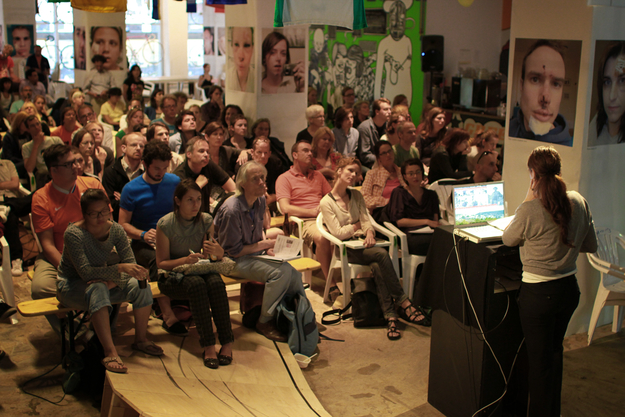About
Mapping for Change is about defying and opposing existing structures. It decentralizes power, handing it back to individuals and allowing local communities to organize themselves autonomously. Alternative maps and visualizations are used to challenge and change official policy. They allow for multiple views and voices to live side by side.
Click here for a review of Mapping for Change.

Speakers
Malkit Shoshan (FAST)
Malkit Shoshan is an Israeli architect based in The Netherlands. Since 2004 she has been the director of the Foundation for Achieving Seamless Territory. FAST uses architecture and planning to overcome the conflict of causality, fight injustices, and raise public debate on the issue of human rights violation through planning. Malkit will be telling us about Atlas of the Conflict Israel - Palestine, a publication in which she maps the processes and mechanisms behind the rise of the Israeli state over the past 100 years.
Annelys de Vet
Annelys de Vet is the head of the design department of the Sandberg Instituut. As a graphic designer, she is heavily involved in the public and political discourse concerning the cultural representation of national identity. Annelys will be discussing her subjective atlases. In these publications, she maps a country, region or political entity in collaboration with local residents.


Christian Nold
Christian Nold is a London based artist, designer and educator. His projects deal with social, political and environmental innovation. Christian will be telling us about his latest project, Bijlmer Euro, a local currency designed for Amsterdam Zuid Oost. The complimentary currency instigates meetings and social connections, supporting community development.
Bijlmer Euro by Christian Nold - Bijlmer Euro is a project by Christian Nold and Imagine IC .

Wietske Maas
Wietske Maas' work focuses on the co-existence of plants, humans and animals in cities, and on the city as a natural, autonomous source of food. Tonight Wietske will talk about edible geography of the city, based on her most recent research for Casco’s Grand Domestic Revolution. She will talk about recipes as a meridian map of the vegetative underworld of Utrecht.



